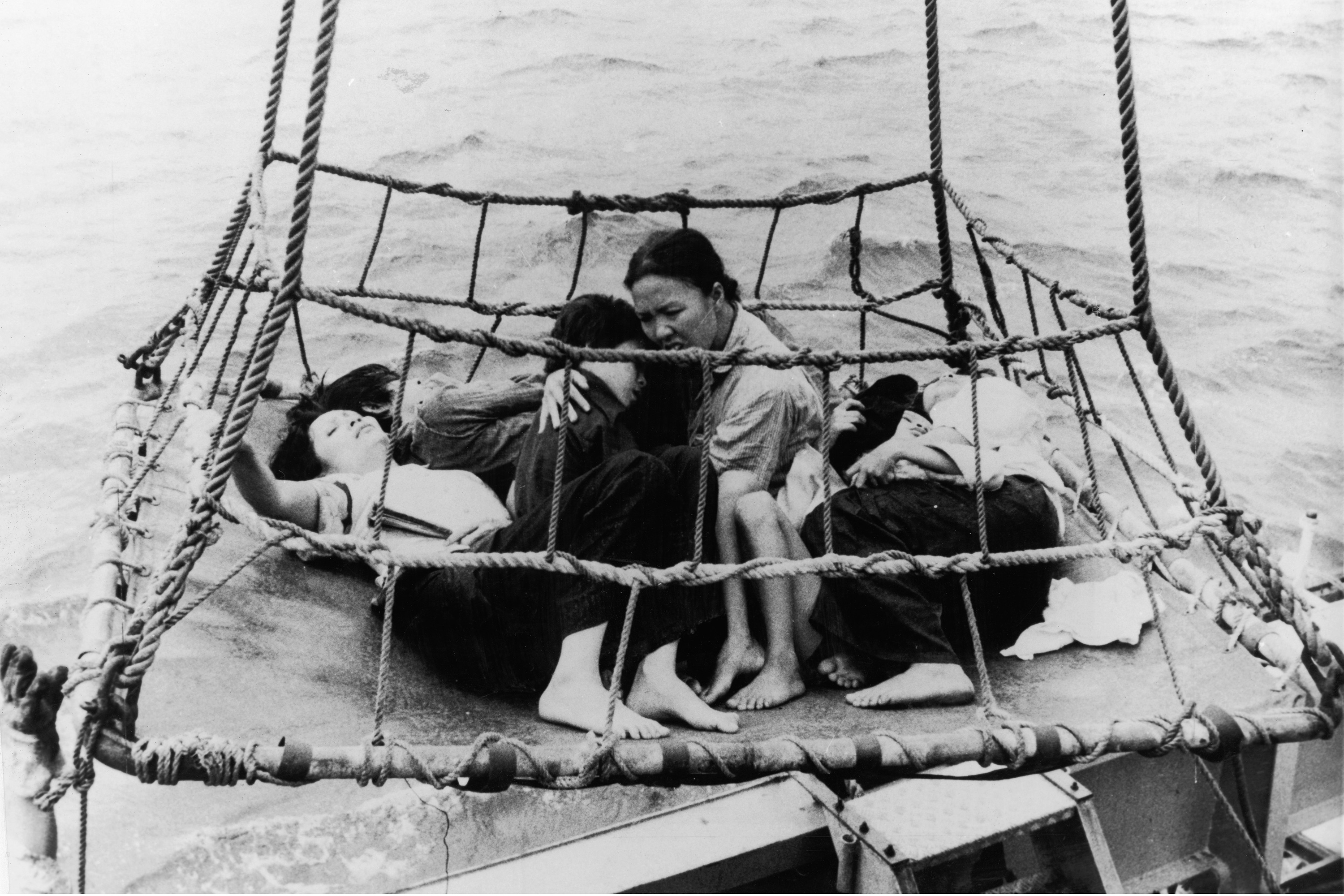Though we are widely recognized as a nation of immigrants, the migration of peoples to the United States has consistently occupied a vexed place in U.S. politics, not least in the current political climate. This year’s UConn Reads selection, Viet Thanh Nguyen’s short story collection ‘The Refugees,’ affords an opportunity for the University community to reflect upon and debate the hot-button issue of immigration.
We often hear that the United States is a “nation of immigrants,” but it may be more accurate to say the country is a “land of refugees.” Refugees – individuals who are the involuntary inheritors of wartime displacements, natural disasters, and state-authorized subjection – have played a key role in American history. From the forced migration of enslaved peoples to the urgent movement of Puritans seeking freedom from religious persecution; from the involuntary relocation of Native subjects during the 19th century to the post-World War II resettlement of Holocaust survivors in the 20th; from those impacted by Cold War conflicts (in Asia and Latin America) to those escaping the realities of the ongoing War on Terror, the line between immigrant and refugee is more often than not blurred.
We often hear that the United States is a ‘nation of immigrants,’ but it may be more accurate to say the country is a ‘land of refugees.’
Although immigrants and refugees are often considered marginal in mainstream discussions of who is and is not a “true” American, their – our – stories of migration, acculturation, and assimilation are central. Many of us have in common an ancestor who traveled from “over there” to “over here,” and the histories that brought us into being as Americans, whether as refugees or immigrants, are inextricably tied to the desire to seek (voluntarily or involuntarily) a better life. Our language and literature are replete with references to “cities upon a hill,” “promised lands,” “asylum states,” unparalleled opportunity, and unmatched possibility.
As Harvard historian Oscar Handlin argued in his seminal work The Uprooted: The Epic Story of the Great Migrations That Made the American People, the history of the United States is first and foremost a longue durée story of migrations from all points north, south, east, and west.
Although Handlin’s book emphasizes “immigrants,” its very title – The Uprooted – evokes images of those forced to leave their homelands. It is surely no coincidence that work was published in 1951, the same year the United Nations held its Convention relating to the Status of Refugees, which formalized a now-familiar definition of “refugee-ness.”
According to the Convention, a refugee is “A person who owing to a well-founded fear of being persecuted for reasons of race, religion, nationality, membership of a particular social group or political opinion, is outside the country of his nationality and is unable or, owing to such fear, is unwilling to avail himself of the protection of that country; or who, not having a nationality and being outside the country of his former habitual residence as a result of such events, is unable or, owing to such fear, is unwilling to return to it.”
Since 1980, U.S. policies involving asylum have largely adhered to the UN definition of who is considered a refugee. Yet U.S. immigration and refugee policy has vacillated between periods of openness and eras of prohibition. For instance, 10 years before Ellis Island opened its proverbial doors to the “huddled masses yearning to breathe free,” the United States passed the 1882 Chinese Exclusion Act, which initially targeted laborers and was eventually extended to other Chinese migrants. Passed in response to anxieties involving the supposed ubiquity of Chinese workers and the perceived threat against white working-class laborers, the Chinese Exclusion Act was renewed for nearly 60 years, until 1943. Such immigration restrictions were by no means limited to the Chinese: at various points in the late 19th and early 20th centuries, Japanese, Korean, South Asian, Latin American, Southern European, and Eastern European immigrants were also targeted with quotas and increased regulation.
The most restrictive of such pieces of legislation – the Johnson-Reed Immigration Act of 1924 – was, as David Wyman compellingly argues in The Abandonment of the Jews: America and the Holocaust, 1941-1945, responsible for the denial of Jewish refugees during the Holocaust. It was not until 1965 that the quota system concretized by the Johnson-Reed Act was eventually overturned by the passage of the Hart-Celler Act, which removed all racial and nation-state requirements for immigration, reflecting the aims of the mid-century civil rights movement. Since the Hart-Celler Act was passed, more than 48 million immigrants have gained legal entry to the United States, and it is credited with changing the demographic face of America by paving the way for the first mass migration of immigrants from Asia and Latin America.
Despite the openness of this act, immigration (along with refugee asylum) remains a contested issue. As President Trump’s travel ban against refugees takes effect, and details of the proposed wall with Mexico and debates over what to do with the nation’s estimated 11.4 million undocumented immigrants make clear, Americans are divided on whether the United States should be either a “nation of immigrants” or a “country of refugees.” In the context of competing calls to close our border and open our doors, the UConn Reads Committee selected Viet Thanh Nguyen’s short story collection The Refugees as this year’s book. The Refugees focuses its narrative attention on men and women displaced from wartime Saigon and resettled in California who, until now, have remained voiceless. In The Refugees, according to a New York Times book review, Nguyen “gives flesh” to South Vietnamese refugees in a manner that prompts the reader to “lean in more closely, listening beyond what the refugees say to step into their skins.”
Timely and provocative, The Refugees is very much a work that speaks to the mixed feelings associated with migration and resettlement. I encourage you to read the book and engage with UConn Reads activities over the year ahead.



